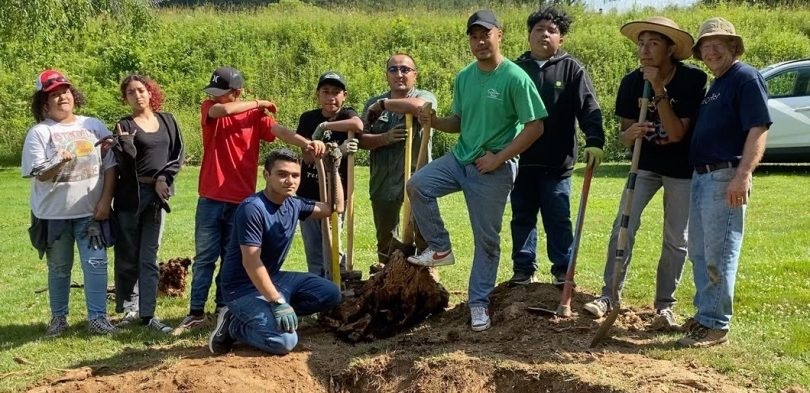We Are All Tax Collectors and Gentiles
by Bishop Chris Giesler
Preaching Text: Matthew 18:15-20
This text leaves me scratching my head. It seems it was written in a textbook on managing church conflict. If somebody has wronged you, first go to the person privately and try to work things out. If that doesn’t work, go to them with a small committee from the church. Maybe there is strength in numbers. If that does not work, give it one more try, but get the whole church involved. And finally, if they don’t listen to the church, let them go.
Don’t get me wrong here. I think there is some wisdom to this approach if appropriately handled. If someone has wronged you, the place to start is with an open and honest conversation that comes with the hope and prayer of reconciliation. By the way, while not mentioned here, it might be a good idea to do some self-reflection before this conversation and ask yourself what you might have done to cause the problem.
Jesus next suggests that if the person does not listen to you, take one or two others with you to be a witness and support for you. Again, while not mentioned here, you might want to talk with these persons before you meet with this “sinner” to see if you are truly seeing the problem correctly.
As the case study in conflict continues, Matthew suggests that if this person does not repent after these two conversations, you should tell the whole church about it. This is where things might break down a bit. We must remember that these words were written some 2,000 years ago, and for us today, getting the whole church involved might be a bit difficult and could backfire. I could see getting a small group of trusted and well-respected congregational leaders together to discuss the issue might be appropriate, but bringing this to the whole group might lead to unintended consequences, like expanding the conflict. Again, please know that you might be the one in the wrong. So, tread carefully here.
I know that the intentions are good here, and there is some wisdom in starting small and then expanding your field of support, but the advice given to a community of faith 2,000 years ago on handling a church conflict might not be spot on for us today.
What I have often found most confusing about this passage here is the advice Jesus gives in this passage about what to do with a person who still refuses to confess and come back into the community. Jesus says, “Treat them like a gentile or tax collector.” Is Jesus really giving us permission to write someone off?
But wait, who does Jesus tend to hang around with? Gentiles and tax collectors! Remember Zacchaeus, remember the Centurion who asked for the healing of his servant? Remember the Syro-Phonecian woman who asked for the healing of her daughter? And in Matthew’s Gospel, who is it that shows up with gifts for the young Jesus and his mother? The magi, who were “Gentiles.” Tax collectors and Gentiles all over the place! And to top all of this off, guess what the disciple named Matthew did for a living before Jesus called his name – He was a tax collector!
After you have tried everything else, Jesus says to treat them like tax-collectors and Gentiles. In other words, seek them out! Welcome to the kingdom of God. A place where ever two or three are gathered together, God is there.
So, Jesus gives us the formula to restore relationships when there is division or pain in the community. First, talk to them yourself; second, take a trusted friend with you; third, invite the faith community to join you. The most significant assumption here is that you begin this process in the spirit of humility. This is not to ask you to welcome continued abuse or mistreatment. If folks can’t return to help build up the kingdom, then they are the ones who decide to walk away.
The truth is we are all different, and as a result, conflict is inevitable. We all like different foods, we like different beverages, and some of us prefer vacationing at the beach while others prefer the mountains. So, it is no mystery that we will have differences of opinion about how the church should work and what our priorities should be. But underneath it all is the notion that we are all God’s children, and even when we disagree, Christ is in our presence.
The primary mission of the church is to worship and to learn together. The church is where the love of Jesus holds priority over all other agendas. The church is where we then join hands to reach out in the spirit of love to all people in the community around us.
The truth is that we are all like tax collectors and Gentiles. We are all outsiders. Thanks be to God; these are just the kind of folks Jesus had a heart for. Perhaps we should, too.







